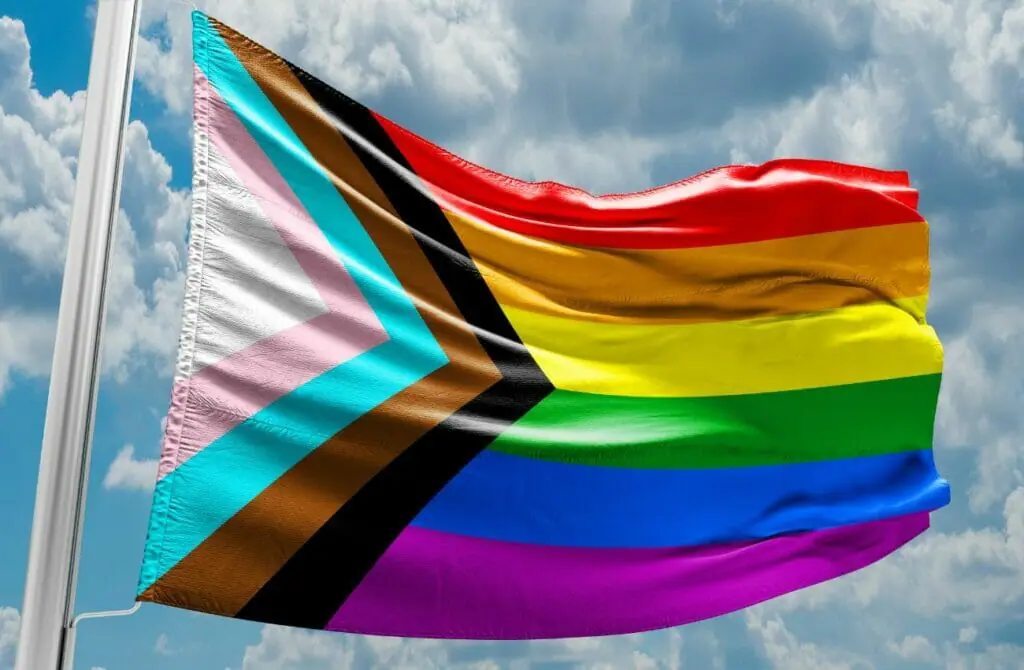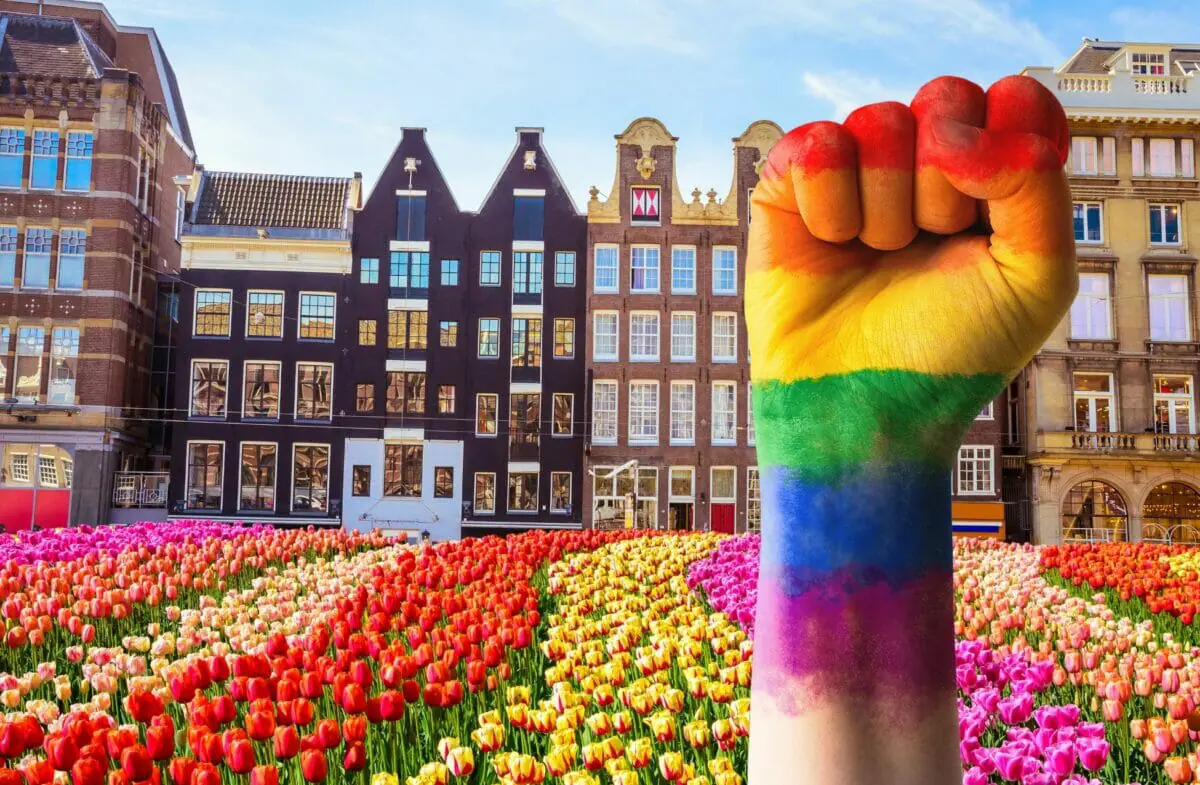The Netherlands has long been a global leader in advocating for and protecting the rights of the lesbian, gay, bisexual, and transgender (LGBT) community. From the early legalization of same-sex sexual activity in 1811 to being the first country to legalize gay marriage in 2001, the Dutch nation consistently champions equal rights for all.
LGBT individuals, both locals and tourists, can generally expect a positive and accepting environment while in the Netherlands. However, as with any location, vigilance and awareness are important for personal safety and well-being.
Although the Netherlands offers an inclusive and safe environment to the LGBT community, both residents and visitors must remain informed about the rapidly evolving legal and social landscape.
Always be aware of possible changes in laws or attitudes and seek up-to-date information before traveling or engaging in activities. It is important to remember that there may still be individuals with malicious intent in any country, no matter the overall level of acceptance.
To stay informed and protected, connect with local and international LGBT advocacy groups, such as COC Nederland, a prominent organization advocating for LGBTIQ+ rights in the Netherlands. These organizations provide valuable resources and advice for visitors and locals, ensuring that everyone can embrace their true selves and take advantage of the Netherlands’ influential role in promoting and celebrating global LGBT rights.
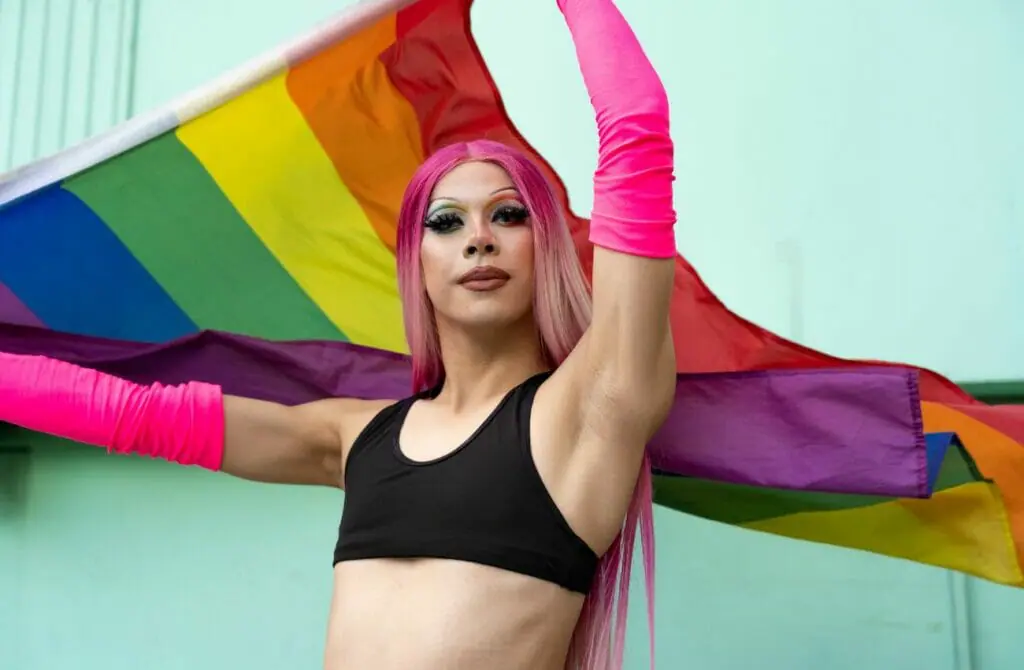
History Of LGBT Rights In The Netherlands
The history of LGBT rights in the Netherlands began in 1811 with the legalization of same-sex sexual activity following the French invasion and the introduction of the Napoleonic Code that removed any sodomy laws in the country. Since World War II, the movement for LGBT rights in the Netherlands has progressed steadily with a series of milestones and developments both locally and internationally.
The Netherlands is known for being one of the most forward-thinking countries in the world when it comes to LGBT rights and protections. In 2001, it became the first country to legalize same-sex marriage, granting equal rights to everyone. This progressive attitude extends to both residents and tourists, creating an accepting and inclusive environment for all.
For international travelers visiting the Netherlands, it is important to remain vigilant and to be aware of local laws and customs. Although the country is notably tolerant, there are always potential risks and the possibility of encountering bad actors. Moreover, situations can change fast, so staying up-to-date with the latest information is crucial to ensure a safe and enjoyable trip.
To stay informed, it is a good idea to connect with LGBT advocacy groups in the Netherlands. These organizations work tirelessly to promote equal rights and provide resources and support for the local and international LGBT community. A few notable organizations include COC Nederland and Equal Rights Coalition (an international coalition that promotes equal rights for LGBTIQ+ persons, with the Netherlands as an active member).
In summary, the Netherlands has a long and proud history of advancing LGBT rights, making it a welcoming and inclusive destination for travelers. To ensure a safe and enjoyable experience, visitors should stay informed, be vigilant, and connect with local LGBT advocacy groups.
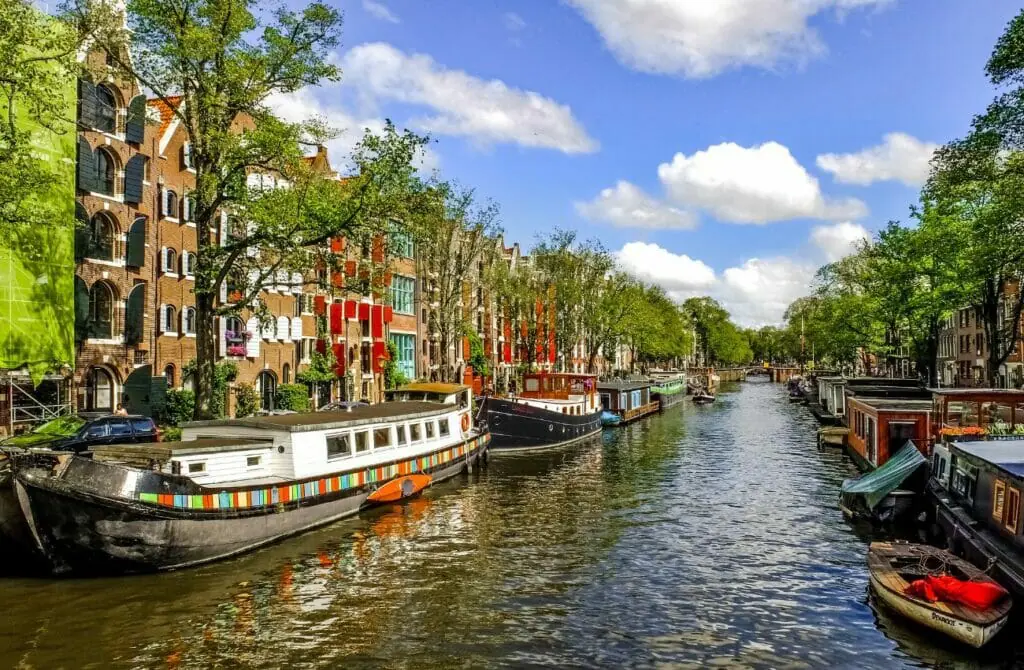
The LGBT Legal Situation In The Netherlands
In the Netherlands, LGBT rights are highly progressive and rank among the highest in the world. Same-sex sexual activity was legalized in 1811, and the country has consistently worked towards fostering an inclusive environment for the community. Furthermore, the Netherlands became the first country in the world to legalize same-sex marriage in 2001. This greatly impacted both local people and tourists, allowing them to express their love and commitment without fear.
When visiting the Netherlands, LGBT travelers can expect a mostly comfortable and accepting experience. However, it’s essential to remember that situations can change, and not everyone may share the same accepting views. Always remain vigilant and keep up to date with the latest news and developments regarding LGBT rights and safety.
If you feel that your safety or rights have been compromised, reach out to local LGBT advocacy groups, such as COC Nederland or Amsterdam Gay Pride. These organizations work tirelessly to promote equal rights, provide support, and fight for further legal advancements.
As a traveler, it’s essential to stay informed about the legal situation and any potential changes in the Netherlands. Consult reputable sources and reach out to local organizations to ensure accurate and up-to-date information. This will allow you to fully enjoy your visit to this vibrant and diverse country while staying protected and knowledgeable about your rights. Remember, always err on the side of caution and stay vigilant, regardless of your destination.
In conclusion, the Netherlands is a leading nation in terms of LGBT rights and equality. With a rich history of support and legal advancements, both local people and tourists can enjoy a welcoming environment. However, as with any location, it’s essential to remain cautious and informed to ensure a safe and enjoyable experience.
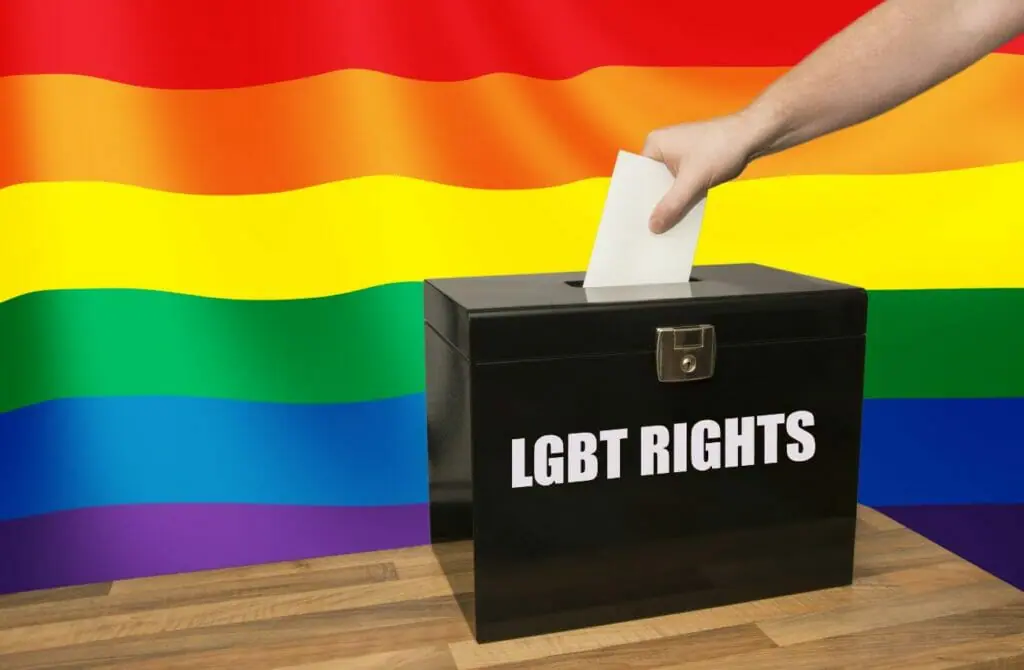

The LGBT Social Situation In The Netherlands
The Netherlands is well-known for its progressive stance on LGBT rights, providing a welcoming environment for both locals and tourists. Legal same-sex sexual activity has been permitted since 1811, and the country has continued to advance in terms of inclusivity, with discrimination based on sexual orientation being explicitly prohibited by the Penal Code since 1992.
For locals, this has resulted in a generally safe and accepting atmosphere. Many cities, including Amsterdam, Rotterdam, and Utrecht, host lively LGBT scenes and events. Dutch society generally displays a high level of social acceptance towards LGBT individuals, allowing them to live openly without fear of persecution.
For tourists, the Netherlands also offers a safe and inclusive environment. However, it’s always crucial to remain vigilant since situations can change quickly, and bad actors exist in every country. Be sure to stay updated on any developments regarding LGBT rights and safety while traveling through local embassies or online resources.
One important step travelers can take for added protection is to engage with local LGBT advocacy groups, such as the COC, the oldest existing LGBT NGO in the Netherlands. These organizations can provide helpful resources and insights into the latest developments relevant to their communities.
Remember, information may become outdated, and the social situation may evolve – always seek current advice before making travel plans. With diligence and caution, the Netherlands can be an open and affirming destination for all members of the LGBT community.
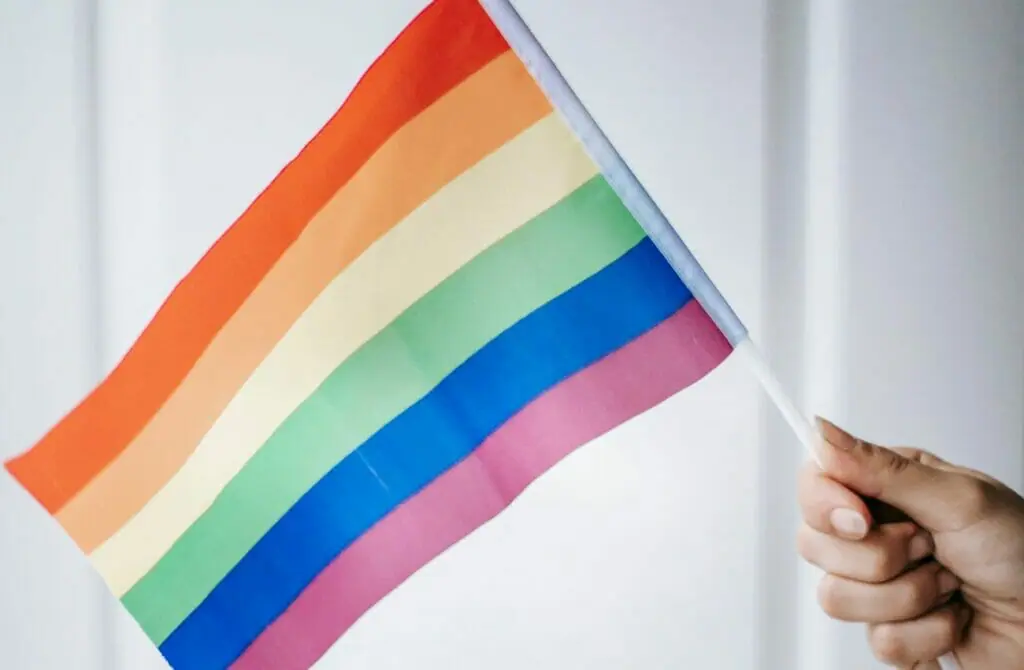
Trans Rights In The Netherlands
The Netherlands has been a frontrunner in LGBTIQ+ rights, and this includes progressive policies and attitudes toward transgender rights. In 2014, a new law came into effect that simplified the process for changing one’s gender on official documents, making it legal and easier for transgender individuals to have their identity recognized without needing surgery.
For locals and tourists alike, the environment is supportive when it comes to transgender rights. Dutch society is known for its accepting nature and openness, creating a welcoming atmosphere for transgender individuals. However, it is essential for visitors to stay updated on the latest information and remain vigilant, as situations can change, and one might encounter discrimination even in progressive places.
To ensure safety, it is advisable to connect with local LGBTIQ+ organizations that can provide current information and assistance. For example, COC Netherlands is a prominent advocacy group in the country that supports the rights of lesbian, gay, bisexual, transgender, intersex, and queer individuals. They can offer advice and guidance for transgender tourists during their stay in the Netherlands.
As with any country, staying informed about the local laws and culture is crucial. While the overall attitude towards transgender rights in the Netherlands is positive, remember there might still be individuals who harbor prejudice. Be cautious, monitor developments, and maintain access to reliable sources of information – such as local LGBTIQ+ advocacy groups – to ensure safety and well-being during your time in the Netherlands.


The Future For The Queer Community In The Netherlands
The future looks bright for LGBT rights in the Netherlands, a country known for its progressive stance and strong legal protections. The Dutch government has been working to ensure equal rights for all its citizens, and one notable development includes the move to enshrine LGBTQ+ rights in the country’s constitution. This would provide a guarantee for the hard-won rights that the community has enjoyed over the past decades.
When it comes to the local community, the Netherlands is a place where LGBTQ+ individuals can typically feel safe and accepted. As a tourist, there are numerous gay-friendly establishments, events, and resources available to help make your experience a memorable and enjoyable one. However, it is always important to remain vigilant and be aware of any potential dangers or cultural differences while exploring a new country.
In order to ensure a safe and enjoyable experience for LGBTQ+ travelers, it is essential to stay up-to-date with the latest information and advice. Situations can change rapidly, and while the Netherlands has made significant strides in promoting equality, it’s important to always be aware of current events and local attitudes. Seek advice from reputable sources, such as LGBTQ+ advocacy groups, to ensure your safety and well-being during your stay.
Some notable LGBTQ+ advocacy groups in the Netherlands include COC Netherlands, which has been at the forefront of defending LGBTQI rights for over 70 years, and Transgender Netwerk Nederland (TNN), which specifically focuses on trans rights and support. By connecting with these organizations, you can stay informed on the latest developments, events, and resources that cater to your needs.
In conclusion, the future for LGBTQ+ rights in the Netherlands is optimistic, thanks to its history of progressive laws and societal acceptance. As a traveler, take advantage of this welcoming environment while exercising caution and staying informed through local advocacy groups. The vibrant and inclusive culture of the Netherlands is one that’s certainly worth experiencing first-hand!
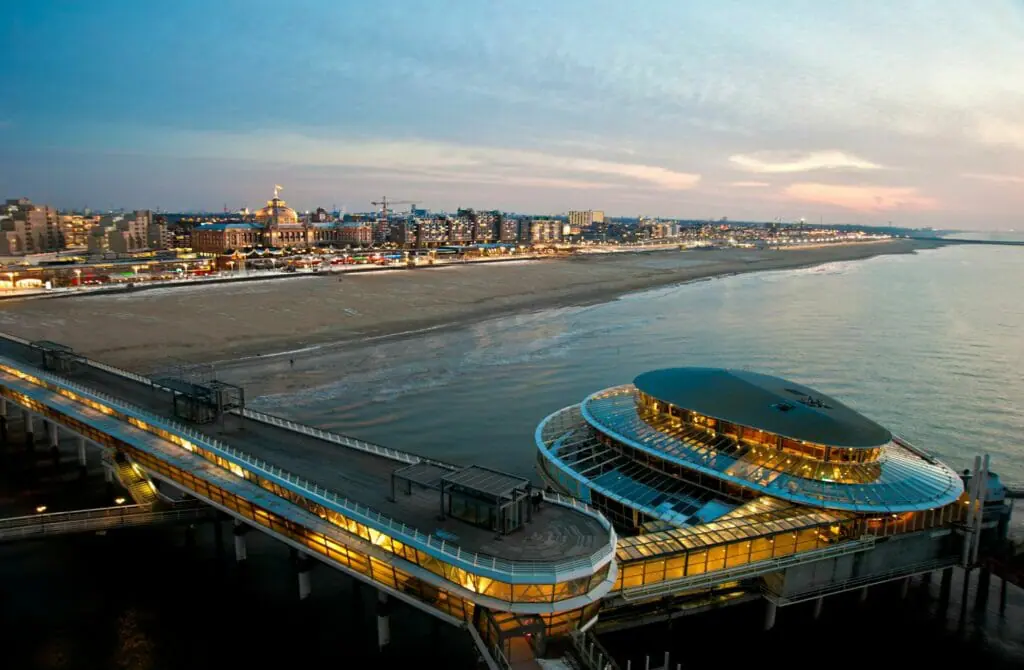
Protect Yourself While Travelling In Gay Netherlands
The Netherlands is considered one of the most LGBT-friendly countries in the world, with a long history of promoting and protecting the rights of lesbian, gay, bisexual, and transgender individuals. However, it’s important to remember that situations can change fast and that there are always bad actors in every country, so it’s essential to remain vigilant and protect yourself.
Whether a local citizen or a tourist, knowing your rights and staying up-to-date on current information is key. The Netherlands has a comprehensive legal framework that seeks to erase discrimination based on sexual orientation, gender identity, and gender expression. Same-sex sexual activity has been legal since 1811, and same-sex marriage and adoption rights have been in place since 2001. If you’re a tourist, it’s worth checking your own country’s travel advice on the situation in the Netherlands, as this information may change.
As a member of the LGBT community, there are several ways to ensure your safety and well-being in the Netherlands. Collaborating with local advocacy groups like COC Netherlands, which works for the equal rights, emancipation, and social acceptance of LGBT persons, can keep you informed of any changes in the legal landscape and provide valuable support.
Be proactive in seeking out safe spaces, such as restaurants, bars, and community centers that are openly LGBT-friendly. These businesses often display a rainbow flag or other unifying symbols to demonstrate their support for the LGBT community.
Remember to trust your instincts and prioritize your own safety. If you feel uncomfortable or as if you’re in a potentially unsafe situation, remove yourself from that environment. Additionally, always have a backup plan when making travel arrangements and socializing.
While the Netherlands is a forerunner in advocating for LGBT rights, it’s essential to stay informed, vigilant, and connected to local support networks. And, as always, remain aware that situations can change and information can become outdated, so be sure to seek updated advice before traveling. By empowering yourself with knowledge and resources, you can contribute to fostering an even more inclusive and welcoming environment for everyone.
